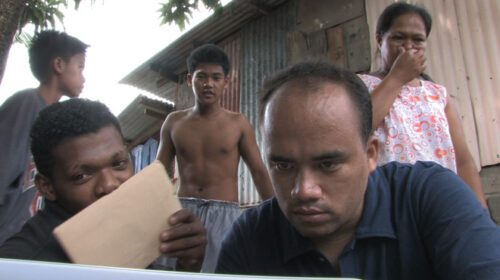Left by the Ship

Three young adults born to Filipino mothers by U.S. servicemen battle against social stigma, family problems, and identity-related issues 18 years after the last U.S. base closed.
JR, Charlene, and Robert are half American; they are among the many children born to U.S. servicemen who were stationed in military bases in the Philippines until in 1992. Their stories illuminate the limbo of a generation of Filipino Amerasians.
In 1982, the United States Congress voted to grant U.S. citizenship to Amerasians from Vietnam, Korea, Thailand, and other Asian countries, in what was known as the Amerasian Homecoming Act. Although the Philippines has been a United States ally for more than a century, Filipino (and Japanese) offspring of soldiers were not included: they must be claimed by their former American G.I. fathers if they wish to claim their U.S. citizenship.
The Subic Bay Naval Base in the Philippines was the largest naval base outside the United States mainland. The town of Olongapo, just outside its gates, did not exist until the base did. Its economy was built on the R&R needs of soldiers: More than 15,000 women worked in its red light district.
In 1992, the Marcos regime fell and the Filipino Senate voted to force the U.S. bases to close. At least 50,000 Amerasians remain in the Philippines today, and they suffer a great amount of discrimination.
Abandoned in early life, living with the stigma of being illegitimate children and unable to elude prejudice because it shows in their physical features, they are labeled "Iniwan ng Barko" (left by the ship). The assumption of every Amerasian person is that their mother was a prostitute and their father abandoned them. The children of African American soldiers are especially singled out and ridiculed.
What does the future hold for these forgotten children of the post-war world?